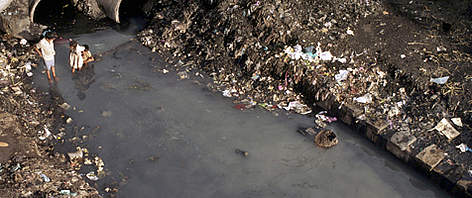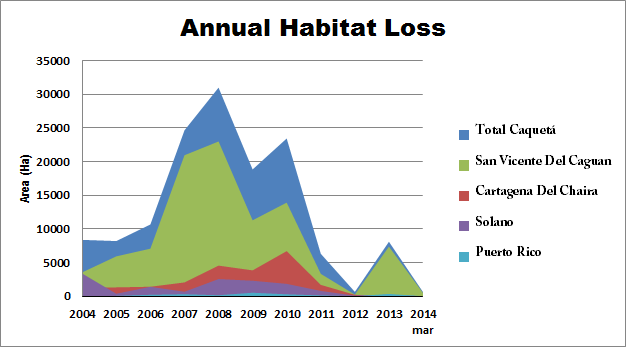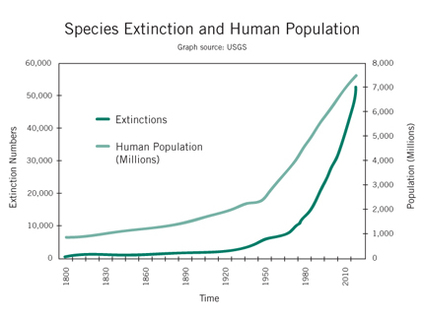Throughout this blog I am going to try to cover some top environmental issues facing our world today. There is a lot to cover, and a lot to explain, but hopefully these blogs can give readers a nice overview of how truly daunting these issues can be.
Human overpopulation is among the most pressing environmental issues, but ecological issues it causes are just the beginning. Here are some of the effects of overpopulation.
- Loss of fresh water. 75 percent of the planet is made up of water, and of that 97.5 percent is saltwater leaving 2.5 percent as freshwater. 70 percent of that freshwater is icecaps, and the remaining 30 percent makes up land surface water such as rivers and lakes. Most of the freshwater resources are either unreachable or too polluted, leaving less than 1% of the world’s freshwater, or about 0.003% of all water on Earth, readily accessible for direct human use. it is estimated that by 2025, more than half of the world population will be facing water-based vulnerability and human demand for water will account for 70% of all available freshwater.
 While this is happening, I just recently watched a video in my chemistry class that discussed the future possibility of transportation one day running on water. I’d like to know how that is going to work, when we barely have enough water to live our daily lives.
While this is happening, I just recently watched a video in my chemistry class that discussed the future possibility of transportation one day running on water. I’d like to know how that is going to work, when we barely have enough water to live our daily lives. - Increased habitat loss. This one is pretty simple; the more humans living on earth, the less room there is for any other life to live on earth. Human overpopulation is a major driving force behind the loss of ecosystems, such as rainforests, coral reefs, wetlands and Arctic ice. Rainforests once covered 14% of the Earth’s land surface, now they cover a bare 6% and experts estimate that the last remaining rainforests could be consumed in less than 40 years and certainly by the end of the century at the current rate of deforestation.
 Due mainly to warming temperatures, acidifying oceans and pollution, close to 30% of the ocean’s reefs have already vanished since 1980, including half of the reefs in the Caribbean and 90% of the Philippines’ coral reefs, and scientists forecast that Australia’s Great Barrier Reef may be dead by the year 2050 and all coral reefs could be gone by the end of the century. As human populations continue to grow, so will our footprint on the interconnected, ecological infrastructures of life.
Due mainly to warming temperatures, acidifying oceans and pollution, close to 30% of the ocean’s reefs have already vanished since 1980, including half of the reefs in the Caribbean and 90% of the Philippines’ coral reefs, and scientists forecast that Australia’s Great Barrier Reef may be dead by the year 2050 and all coral reefs could be gone by the end of the century. As human populations continue to grow, so will our footprint on the interconnected, ecological infrastructures of life. - Species extinction. Human beings are currently causing the greatest mass extinction of species since the extinction of the dinosaurs 65 million years ago at rates 1000 to 10,000 times faster than normal. The 2012 update of the IUCN Red List of Threatened Species shows that of the 63,837 species examined worldwide, 19,817 are threatened with extinction – nearly a third of the total. If present trends continue, scientists warn that within a few decades, at least half of all plant and animal species on Earth will be extinct, as a result of climate change, habitat loss, pollution, acidifying oceans, invasive species, over-exploitation of natural resources, overfishing, poaching and human overpopulation.

- Depletion of natural resources. As the human population continues to explode, finite natural resources, such as fossil fuels, fresh water, arable land, coral reefs and frontier forests, continue to plummet, which is placing competitive stress on the basic life sustaining resources and leading to a diminished quality of life. A study by the UNEP Global Environment Outlook, which involves 1,400 scientists and five years worth of work to prepare, found that “Human consumption had far outstripped available resources. Each person on Earth now requires a third more land to supply his or her needs than the planet can supply.”
- Elevated crime rate. As human overpopulation drives resources and basic necessities, such as food and water, to become scarcer, there will be increased competitiveness for these resources which leads to elevated crime rates due to drug cartels and theft by people in order to survive. As Aisha Tariq of the Pakistan Times states, “It has been observed that the countries which have balanced population, crime rate is very low in such regions. When people are not provided with the basic necessities, it elevates crime rate.”

- Lower Life Expectancy in the Fastest Growing Countries. According to a Harvard study, “Over the next forty years, nearly all (97%) of the 2.3 billion projected increase will be in the less developed regions, with nearly half (49%) in Africa.” Already strained with relentless population explosion, many developing countries, such as in Sub Saharan Africa and Southern Asia, will experience a degradation of their quality and length of life as they face increasing difficulties to supply water, food, energy and housing to their growing populations, which will have major repercussions for public health, security measures and economic growth. These situations are especially dire for populations in Uganda, Nigeria, and Bangladesh, which will double and, in some cases, even triple over the next 40 years.
There are many more effects that are caused by overpopulation, but the fact of the matter is that humans are reproducing way faster than they should and if we continue to grow as a population, everything else on this planet will slowly and surely diminish.
Overpopulation Effects – Everything Connects
Cause and Effects of Overpopulation

I also chose to focus on the environment for my Civic Issues blog. It is fascinating to see how we both chose the same broad topic and discussed two completely different problems we are facing in the world today. It just goes to show you how much is wrong with the world we live in and how, we as a human race, are not doing our job to protect and keep our environment clean. After all it is the only earth we have. I think the issue of overpopulation is a big one and you definitely understand that when writing about this problem. I never realized how much of a loss of water we are truly at though. You hear about the droughts in California and other places around the globe, but it doesn’t really seem to sink in because it doesn’t affect you directly. But then you have to think about the world as a whole and it certainly does affect each and every one of us. It is scary to think that one day we might be at a loss for fresh water. I wrote my blog this week on the topic of sea levels rising. Even this subject is scary to think about because major cities could become underwater if we keep polluting our lands and releasing harmful chemicals. I think this problem of overpopulation is definitely one to take seriously and start making some changes before it is too late.
I really like the format of your blog, as it is easy to follow and accentuates the point of the blog, showing the countless issues caused by overpopulation. Your content is overall really good, however, I think incorporating an image into each category would be beneficial and offer talking points for each section that might make the blog flow better and seem seamless. The only other thing I would say is to be careful about how many statistics you use, unless you include more citations because they can come off as questionable even though any reasonable person knows that they’re more than likely true. I think this provides a good starting point for a blog, but make sure you leave a connection for where the next blog is going because this covers so much and then ends without leaving a thread for another idea. Overall this has a ton of potential and really could be useful in covering real problems that a lot of people try to ignore, because usually people are quick to refute the idea that population growth has anything to do with our failing environment. This topic is a really good starting point and I believe this blog could develop into something really informative and eye-opening.
the only way to save our planet is to reduce human population. quit being mamby pamby and feel good solutions. i don’t want genocide But it is coming.
The real cause of global warming and climate change is not the pollution we make. The true problem is over population. In 1950 this planet had a population of 2.5 billion people, we now have 7.4 and by 2050 will have 9.9 billion people on this planet. It took us from the time we where considered human until 1950 to get to a population of 2.5 billion. So what has taken us thousands of years to reach a population of 2.5 billion, we are now adding that many people to our population every 33 YEARS. This makes us the worst and most damaging invasive species this planet has ever seen and we must do something about it. The damage the greenhouse effect has on this planet is like throwing a cup of gas on to a forest fire compared to the damage we do to this planet in other ways. But for now I would like to point out the true cause of global warming and climate change, and why this would still be happening to our planet with out the greenhouse effect. THE FACT IS that every time we move into a new environment and change that ecosystem to fit our needs we create climate change witch cause global warming. Example. Down town Phoenix can get 20 degrees hot than the natural surroundings. Asphalt, when its 77 degrees out asphalt will reach 125 degrees. 89 degrees asphalt 143 degrees in the sun. So our asphalt can reach 50 degrees hot than the natural ground it sits on. This goes for everything we make, if it gets hotter than the natural surroundings, it is causing global warming. Think about all the cars running, all that heat coming off those radiators at 160 to 190 degrees. Example, take a cigarette lighter not much heat, light a million lighters at the same time and you will get a heat wave. EVERYTHING we make that you can touch, if its hotter than the natural surroundings it is causing global warming. And then we have the fact that we are causing climate change just from what we are physically doing to our planet. Take the rain forest for example. That is a beautiful ecosystem. The rain forest makes its own rain. The vegetation pulls water out of the ground then the heat evaporates the moister out of the plants witch creates the clouds and then rain, that in turn waters the plant life. They say that 90 percent of the rain is created this way in the forest. It is a wonderful example of nature recycling a natural resource. But when we cut it down we change all that. We change the cooling effect that had on our planet and we take away all that water. And even if we don’t build on it, it will still change the climate because what was cool and wet is now hot and dry and no more rain. If we do build on it then we make things even worse because we now have to take more water from the natural environment for our needs putting more stress on that ecosystem. So we have changed the climate and cause global warming with out any pollution. With that being said this is why we have droughts now. It has nothing to do with global warming. The fact is the warmer it gets the more water gets evaporated, if more water gets evaporated then we should see more rain. That’s how the rain forest works, the plants pull the moister out of the ground, the warm dry air pulls the moister out of the plants witch creates the clouds and rain. When we cut it down, it stops raining because all that water is gone, there is not enough left to evaporate to make rain any more. So the real reason we are having droughts now and why it will only get worse has nothing to do with global warming, but has everything to do with over population. After all warmer should create more evaporation witch should create more rain not less. So the more land we build on means there is less natural ground to soak up the water, we push all that run off into other places making that ground dryer than nature intended leaving less moister to evaporate. Then to make it worse we are pulling even more water out of the ecosystem for our needs leaving even less to evaporate for rain. The problem is we are consuming our natural resources faster than nature can replace them and water is no different. the more we consume means the is less for nature to do what it needs to do to keep that ecosystem in balance. The said fact is we could save millions of gallons of water each year without slowing down our rate of consumption and in the process slow our droughts. It would be possible if they would open there eyes. We must get our population under control if we want to fix climate change and global warming. Fact is if we only had 2.5 billion with the technology we have today this planet would a beautiful place with lots of wildlife to enjoy and pass on to our children. But if you could take away all the the greenhouse pollution we make and still add 2,5 billion more to the population we have now, our planet would not be any better off. All the damage we do that creates climate change and global warming will still be happening. The greenhouse effect is only a small percentage of the over all destruction we do to this planet. As long as we keep consuming our resources faster than they can be replaced we will only make things worse. After all this happened to Easter island, there population grew to a point that they started consuming there resources faster than nature could keep up with and the end result was that they leveled that island just trying to survive. Remember the bio dome experiment, that dome was totally sealed off from the out side. They made it just big enough to support 4 people for a year, it was a successful experiment. But if you take that same dome and add 8 more people it would have failed. That’s what we are doing to this planet right now. Controlling the population would be easy if we would do it world wild. The only far way is to allow one child per couple. then they get fixed, with two only making one our population will drop by 50 percent each generation. Something like this must be done if you want to give your children a better life and a healthier planet than you where given. Thank you for your time .
of the freshwater resources are either unreachable or too polluted, leaving less than 1% of the world’s freshwater, or about 0.003% of all water on Earth, readily a
agario unblocked
he beginning. Here are some of the effects of overpopulation.